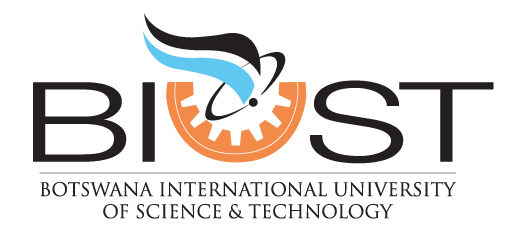Botswana joined the global community in celebrating Space Week with a national commemoration held at Gabane Junior Secondary School under the theme “Living in Space.” The event was made possible through a partnership between the Botswana International University of Science and Technology (BIUST), the University of Botswana (UB), and the Focus on Africa Space Science and Technology for Future Development (FAST4Future) initiative.
Giving the overview of the event, BIUST Director of Outreach and Engagement, Dr. Haniso Motlhabane, explained that Space Week is marked worldwide annually from October 6th to 10th. “Botswana, through these three organisations, chose the 6th of October to commemorate it in an endeavor to understand how the world works,” he said.
Dr. Motlhabane further highlighted Botswana’s increasing role in space exploration, noting that BIUST recently launched the country’s first-ever satellite, BOTSAT-1, designed and developed by local engineers at the university. He added that this celebration was made possible through the support of the United Nations under the FAST4Future initiative.
FAST4Future seeks to strengthen Science, Technology, Engineering, and Mathematics (STEM) in Africa’s higher education systems. It promotes planetary and space science as a pathway to sustainable growth and job creation on a continent rapidly embracing the Fourth Industrial Revolution.
Unpacking the theme, Professor Motsoptse Phillip Modisi, President of the Astronomical Society of Botswana (ASB), reflected on the transition of humanity “from the Stone Age to the Space Age.” He said this transformation underscores the importance of astronomy and space science in Botswana’s development trajectory.
Professor Modisi also spoke about ASB’s objectives since its registration in 2018. These include:
• Acting as a focal point for citizens interested in astronomy and providing opportunities for knowledge sharing.
• Stimulating awareness of astronomy nationwide by taking advantage of Botswana’s clear night skies and future projects.
• Reaching out to schools to inspire young learners to take up STEM subjects through astronomy.
• Promoting the intersection between culture and science by sharing indigenous knowledge alongside scientific perspectives on celestial bodies.
He also highlighted Botswana’s ongoing astronomy and space science projects, such as:
• High Performance Computing (HPC)
• Square Kilometre Array (SKA)
• African Very Long Baseline Interferometry Network (AVN)
• BOTSAT-1
• Hydrogen Intensity and Real-time Analysis eXperiment (HIRAX)
• The upcoming Astropark project
For her part, Dr. Pulane Koosaletse-Mswela, a Senior Lecturer at the University of Botswana and representative of FAST4Future, emphasized the importance of this year’s theme, “Focus on Africa: Space Science and Technology for Future Development,” which, she said, challenges Botswana to look beyond the skies and imagine the opportunities space science presents for youth empowerment.
“I am proud to share about the FAST4Future Project,” Dr. Koosaletse-Mswela said. “This initiative, funded by the Erasmus+ Capacity Building in Higher Education Programme of the European Union, brings together 66 team members across 13 higher education institutions in Africa and beyond, working through seven coordinated work packages. The University of Botswana is a key partner in this exciting project.”
She explained that at its heart, FAST4Future is about building capacity, innovation, and inclusion in space science and technology. “Through collaborative research, teaching, and outreach, we aim to ensure that no learner, no teacher, and no nation is left behind in this new frontier,” she added.
Dr. Koosaletse-Mswela further highlighted how Botswana has already witnessed the excitement space science can bring. She cited astronomy activities in Makgadikgadi, STEM festivals, and science circus events where learners have had opportunities to observe the skies, use telescopes, and link environmental science with space technology by studying aerosols and air quality.
The Space Day commemoration not only celebrated Botswana’s strides in space exploration but also inspired learners and citizens alike to embrace the vast opportunities that science, technology, and innovation hold for the nation’s future.
